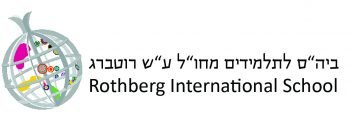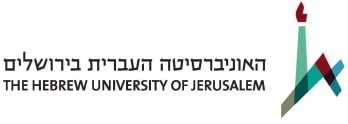Noga Buber Ben-David is a lecturer, researcher, and academic advisor in sociology and anthropology at Hebrew University. She teaches Introduction to Sociology and The History of the Jewish Family at the Rothberg International School (RIS), and is conducting a study on the meaning of work in social enterprise. Buber Ben-David holds a bachelor’s degree in philosophy and political science and a master’s degree in sociology and anthropology. She is currently pursuing her Ph.D.
Social Change
From her participation in the Scouts movement as a teen, to her work as a consultant for social enterprises, to her teaching and research at HebrewU, one common thread has run through Buber Ben-David’s life: “I really love people.” She sees her fields – sociology and anthropology – as a means to help people understand those around them, including the societies and cultures different from their own. “When I study and when I teach, my hope is that society will be much better if people are more aware of one another.”
After two years of research into organizations that balance profits with social impact, Buber Ben-David is currently writing her doctoral dissertation. In Israel, she says, the phenomenon has become more commonplace in only the past 10 to 15 years. “You can see more and more … people just want to see something else,” she explains. “Not only work for money, but for social value.” For example, one organization she studied “hired something like 30 or 40 people with cognitive and physical disabilities, and it’s really interesting to see what’s going on.” Because marginalized populations often have limited options in the labor market, she says, such opportunities can be transformative. Buber Ben-David believes the progress will continue: “10 or 15 years from now, the situation will be much better.”
Learning to Think
In the classroom, Buber Ben-David has a simple goal for her students: she wants them to think. “To be critical, but not critical in a negative way. To understand society, to understand privilege … It’s a privilege to study, right? Not all the people in the world are studying,” she says. “I want them to think, to ask questions, to understand the power in the world, to understand the relationship between groups, between people.”
The key to a valuable class discussion, she says, is helping students engage with the material they’re studying. She might start a semester in The History of the Jewish Family by asking, “What is a family for you?” – or by asking students to define family gender roles. “When you share something personal, you are more open and able to understand others,” she says. “That’s the most important thing – awareness of yourself and others.”
Over the course of the semester, Buber Ben-David says, the way students think about themselves and others gradually transforms. “I really believe in long-term progress,” she says. And sometimes, change happens more quickly: “They start to ask critical questions about society, about culture … Suddenly you can see the ‘Wow, eureka! I can understand what happened in my family, and what happened in the society.’ That’s the moment that I feel, ‘Okay, I did it!’”
Buber Ben-David says that while her students learn from her and from each other, she also learns from them “so much, so much. My point of view is – maybe I have knowledge about sociology and anthropology, knowledge about examples of tribes in the world and in Israel. But, I don’t have all the knowledge … In every lesson I feel that I can learn from my students.” Part of learning together, she says, is making room in the course to explore. “I have a strict syllabus, but I’m really flexible with it,” she explains. When an interesting issue comes up, she often asks students to dig deeper, looking for more information. “And they find so many great examples that I haven’t thought about yet,” she says. “They are the best teachers, I really believe.”
International Community
Whether she’s teaching, researching, or advising, Buber Ben-David says, RIS is a special place to be. As a sociologist and anthropologist, she finds endless learning opportunities in Jerusalem itself: “I believe we are living in the most complicated city in the world … this amazing city of Jerusalem that is so complex, and so multicultural.” And within the school, the international environment helps students understand the larger world around them. “In my classes this year and last year, it was an amazing mix of students from America, Mexico, Europe, East Jerusalem … You can understand, ‘Who are the people next to you?’ When we talk about family, it’s important to know the background of your neighbors, your classmates.”
Buber Ben-David compares that international community to a family: “It’s the people, the students, the staff … I teach in a few places, and I love them all, but I really feel that RIS has something very unique.”
Education
- Master’s degree in sociology and anthropology, The Hebrew University of Jerusalem (2010)
- Bachelor’s degree in philosophy and political science, The Hebrew University of Jerusalem (2006)

